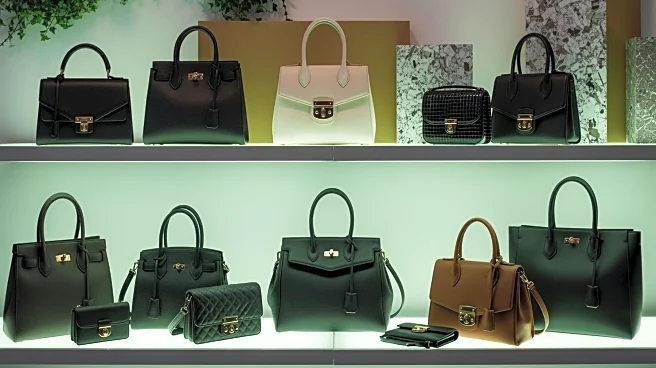What's Happening?
Luxury brands, including Miu Miu, are facing increasing scrutiny over the quality of their high-priced products. Recent incidents have highlighted issues with durability, as consumers report items falling apart after minimal use. This has sparked criticism
on social media, with influencers sharing their experiences of defective products. Miu Miu has responded by stating these are isolated incidents and that their return rates for defects are low. The luxury sector has been accused of deflecting attention from its environmental impact by criticizing lower-priced brands for poor quality. Despite these challenges, Miu Miu remains popular, bucking the trend of a broader market downturn.
Why It's Important?
The criticism of luxury brands for quality issues is significant as it challenges the perception of luxury goods as timeless and durable. This could impact consumer trust and sales, especially as sustainability becomes a more pressing concern. The luxury sector's growth has been partly driven by mass production, which raises questions about its environmental footprint. As consumers become more aware of these issues, luxury brands may face pressure to improve product quality and sustainability practices. This could lead to changes in industry standards and consumer expectations.
What's Next?
Luxury brands may need to address these quality concerns to maintain consumer trust and market position. This could involve improving manufacturing processes and transparency about product durability. Additionally, the industry might face increased regulatory scrutiny regarding environmental impact and sustainability claims. As public awareness grows, brands could be compelled to adopt more sustainable practices and communicate these efforts effectively to consumers.
Beyond the Headlines
The ongoing debate about luxury product quality and sustainability highlights broader ethical and environmental challenges in the fashion industry. The concept of 'emotional durability' in eco-labeling rules suggests a shift towards valuing long-lasting products over fast fashion. This could redefine luxury branding and marketing strategies, emphasizing sustainability and ethical production as key selling points.














